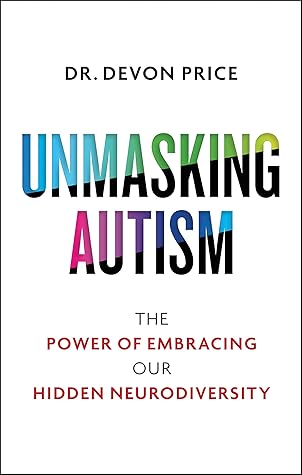More on this book
Community
Kindle Notes & Highlights
by
Devon Price
Read between
December 28, 2023 - January 23, 2024
She wants to be able to build a life around the fact that a twenty- or thirty-hour workweek is the most she can manage.
On the flip side, when Autistic girls have meltdowns, it tends to get written off as an emotional outburst.
Code switching is a cognitively demanding activity that can hinder a person’s performance on challenging or demanding tasks,40 and it is associated with psychological stress and feeling inauthentic and socially isolated.
Sometimes the only viable alternative is to shut down and become deeply inhibited. You can’t offend anyone if you simply melt into the wallpaper.
Therapy that is focused on battling “irrational beliefs,” such as cognitive behavioral therapy (CBT), doesn’t work as well on Autistic people as it does on neurotypicals.
What non-Autistic folks often don’t realize is that Autistic people experience intense sensory input as if it were physical pain.
The authors found that while most Autistics “came out” with the hope of getting workplace accommodations and being treated more patiently, 45 percent said the decision did not benefit them.
“I made a Google doc of people who were ‘too nice’ to me,” he writes. “In my phone contacts, I put emojis by their names. I put strawberries next to people who were super loving. I put seedling emojis by folks who taught me things that made me think or grow.” Samuel reached out to his “strawberry people” and told them that he wanted to prioritize his friendship with them. He admitted he’d discouraged their affection in the past because he’d been afraid of disappointing them. And from then on, whenever he got a notification on his phone and saw a strawberry or seedling symbol, he made sure to
...more
Instead of having to make manual decisions about whom to respond to and in which order, the “strawberry people” system reinforces the idea that certain relationships are more important than others, because they help you cultivate a more solid sense of self.
People with an anxious-ambivalent attachment are difficult to soothe and reassure, and don’t see close loved ones as a safe, “secure base” they can find comfort in when lost or threatened. As adults, people who are anxious-ambivalent tend to get into patterns of intense emotional dependency, combined with insecurity. They yearn to be accepted yet doubt that they can be.
I started assuming that if someone took an interest in me, it was because they wanted to fix me for their own amusement, or because they thought I was useful.
It’s challenging for Autistic people to tell the difference between friends who genuinely like us, and superficial acquaintances who are responding favorably to our masks.
You won’t ever be able to relax around someone if their approval is conditional.
looks less like flawless and serene self-love and more like a “fuck it, let them deal with it”
Sometimes Autistic people believe that the end goal of unmasking is to overcome all internalized stigma and live completely free of shame. I don’t think that’s a realistic standard to hold ourselves to.
resetting your expectations about what a normal or healthy Autistic life looks like.
It turns out, an Autism-accepting world is broadly accessible to a wide array of people, not just Autistics. They’re often far more comfortable for everyone.
If you struggle at work because you can’t play by elaborate, unstated social rules, and you wind up unemployed as a result, you have been socially disabled and severely punished for your failure to mask correctly.
At present, it’s easy for managers to fire an Autistic person (or a person with depression, schizophrenia, or Tourette’s) once they discover we are disabled, so long as they lie and say they’re terminating us for some reason other than our disabilities.
Public awareness can put a target on your back just as easily as it can liberate.
In much the same way, all Autistic people are expected at birth to behave like neurotypicals.
Autistics, like most disabled people, are unemployed and underemployed at far higher rates than the neurotypical population.
One awkward moment or verbal misstep at work can get us fired, particularly if we are visibly disabled or already out about our neurodiverse status.


